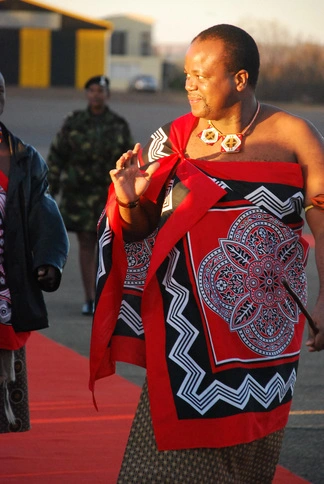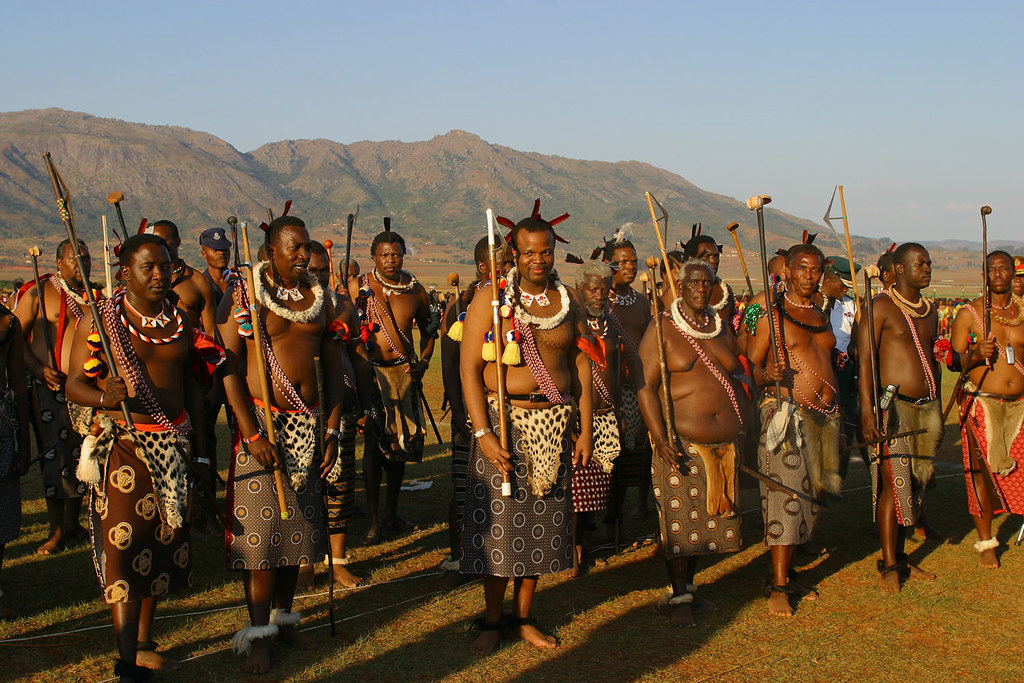The Swazi are one of the Bantu speaking groups that inhabit the Southern parts of Africa belonging to the Eswatini kingdom. The Swazi are also known as the Swati people. They were named Swati after their King Mswati II who took charge of the Kingdom after the demise of his father during the time when the British wanted to occupy their region. They can be found in three countries which are namely Eswatini formerly named Swaziland, Mozambique and South Africa. Their migration trends are not clearly known but it is believed that they migrated from the Eastern parts of Africa. The region they live in was formerly inhabited by the San people. The Swazi are one of the known ancient tribes in Africa and have very many primitive and interesting facts that make them a unique tribe.

The Swazi have very many fascinating facts. These people are ruled by the last true monarchy in Africa, meaning that they are headed by kings as their leaders. Majority of the Swazi people live in the newest country, that is Eswatini, they honor ancestral spirits, they participate in the Umhlanga ceremony every year where the king has the mandate to choose a bride during the Umhlanga ceremony annually. They also have their cultures and customs and the common culture among the Swazi is the singing and dancing ceremony that they hold after a certain period and which is passed on from one generation to another.
The Swazi believe in one supreme creator and at the same time worship their ancestors. They also settle in villages and have been in existence since the 15th century. This therefore means that the Swazi are one of the most ancient tribes and groups that are still in existence. From the history of the Swazi, it shows clearly that they were originally formed and brought into existence by 16 clans. These clans later on split and migrated into different parts and therefore later on several groups joined to form the Kingdom of Eswatini, formerly known as Swaziland.
- The Swazi People Are Ruled By The Last True Monarchy In Africa
A monarchy is a form of government whereby the head of the government is a king or a monarch. There are two types of monarchical governments. These are absolute monarchy and constitutional monarchy. Constitutional monarch is whereby the powers of the king are limited to a certain written constitution while an absolute monarch is a form of government where the powers of the ruler are unlimited and therefore, they take full control of the people and the whole nation in general. The Swazi people are ruled by a monarch form of government and are one of the few remaining nations that have this type of government in the world and therefore they are known to be a nation ruled by the last true monarchy in Africa.
The Swazi people have been ruled by over 10 kings and have had this form of government since their existence in the late 15th century. The most famous king among the Swazi is king Mswati II who was a very powerful king. The name of this group of people actually came from the king, that is, the Swazi were named after king Mswati. King Mswati was the son of king Sobhuza and took charge of the kingdom after the death of his father.
- Majority Of The Swazi People Live In The Newest Country In Africa – Eswatini
The Swazi used several routes during their migration. The migration of the Swazi started all the way from Pongola River up to their current homeland. The main reason that contributed to the migration of these people is internal conflicts and external attacks from their neighboring communities such as the Ndandwe. During the time of migration, the Swazi were under the rule of king Sobhuza I, the son of Ngwane, who is believed to be the first ruler of the Swazi people. After winning against their enemies and migrating, king Sobhuza became the most indomitable king.
Eswatini is the present-day Swaziland and is one of the newest countries in Africa. This is where the majority of the Swazi people live though some of them have moved and based in urban areas especially the parts of Johannesburg in South Africa. Even though there may be challenges brought by modernization, the Swazi are still strong to their cultures and traditions every day.
- The Swazi People Honor The Ancestral Spirits
The most common and dominant religion among the Swazi people is Christianity. They believe in one supreme being whom they recognize as their creator. However, the Swazi also venerate their ancestors. The main role of the ancestors in the Swazi religion is to act as mediators between the people and the god in whom they believe in.
The Swazi believe in a creator known as Mvelivcanti, which means one who has been in existence since the beginning. Most of the people still use the traditional methods of worship and still conduct rituals associated with spirits but the biggest population practice Christianity.
- The Swazi People Participate In The Umhlanga Annually
This is a special ceremony among the Swazi that is conducted every year as part of their culture and customs. The main aim of this ceremony is to bring the people together and unite them as one. The ceremony lasts for a duration of five to eight days due to the many activities involved.
The Umhlamga ceremony is simply a sing and dance ceremony. Many unmarried women and young girls are brought together and this is where they get taught about key morals and ethics that they should practice in their day-to-day life. Drumming is also involved in this ceremony.
- The Swazi King Chooses A Bride During The Umhlanga Every Year

During the Umhlanga ceremony, the unmarried women and the young girls present themselves before the queen dancing and singing in celebration in order to cut reeds. The Umhlanga ritual is still being practiced and embraced by the Swazi up to date and has gained popularity becoming a major tourist attraction.
During the umhlanga ceremony, the king gets an opportunity to choose a bride from the young virgins of his choice and therefore, the king chooses a bride every year. This ceremony has been conducted since the 1940s and thousands of women and young girls are involved.
